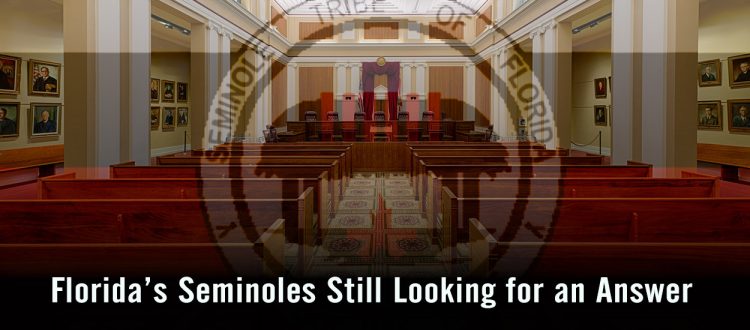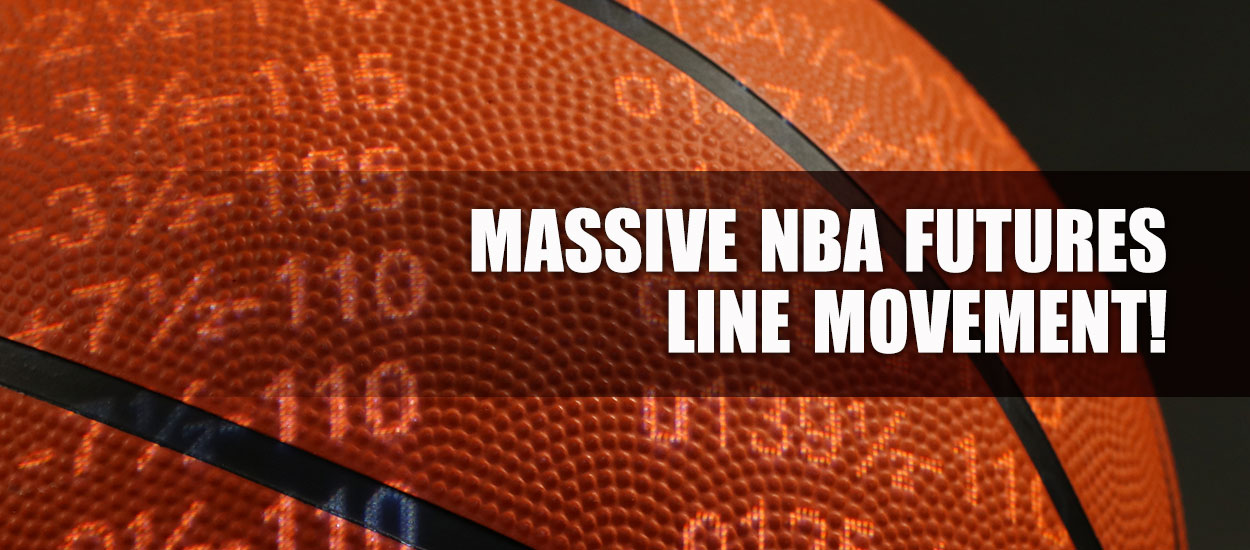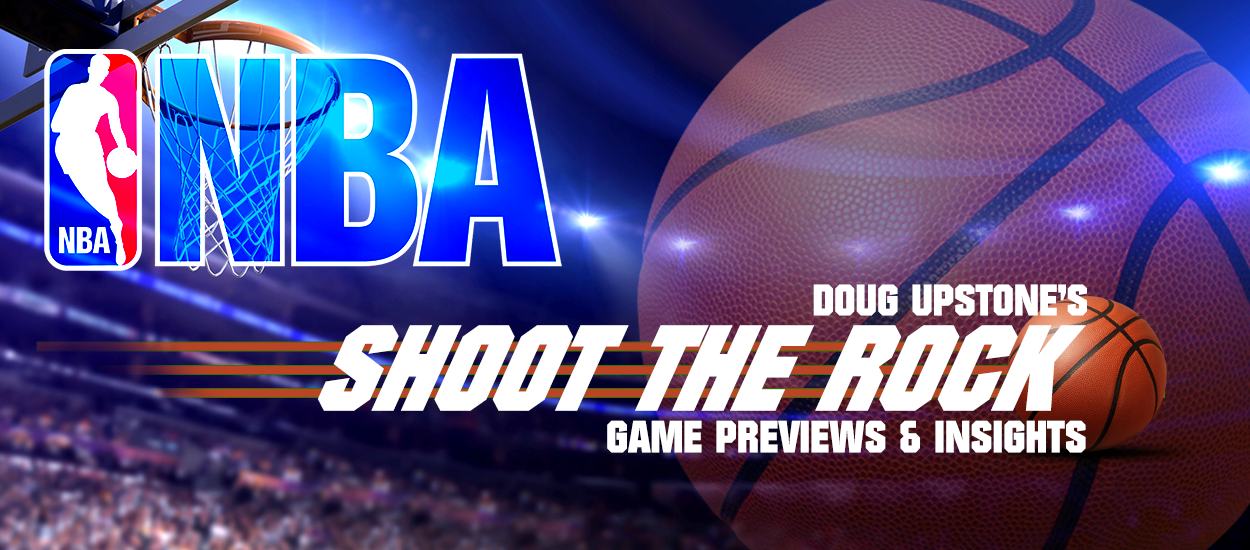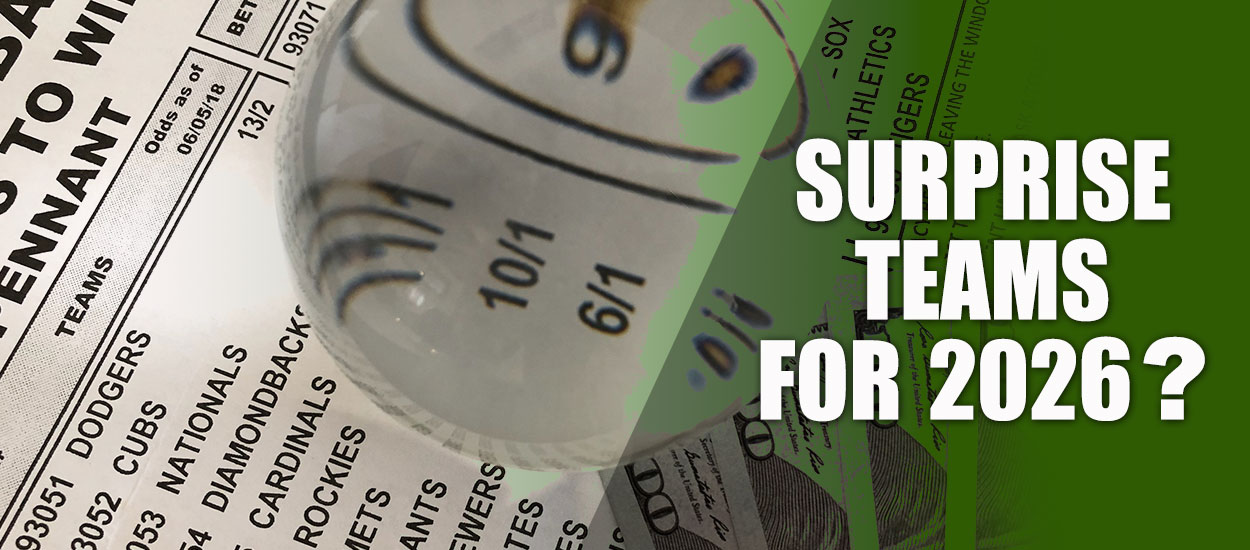The Florida gambling compact is not yet resolved but could have an easy solution, if SCOTUS plays ball
Sports bettors across Florida are now able to bet on sports via the Hard Rock betting app, which runs off of servers on Seminole lands. The Seminoles also added craps and roulette at the six casinos it operates in the states. The question is, “Will online sports betting continue?”
The Seminole Tribe and Florida Gambling
For those unfamiliar with the situation, Governor Ron DeSantis signed a 30-year compact with the Seminole Tribe in 2021, extending the terms of the previous compact signed in 2015 by Governor Rick Scott. But, the new compact also gave the Seminoles exclusive rights to offer sports betting both in person and online in exchange for at least $2.5 billion a year for the first five years. 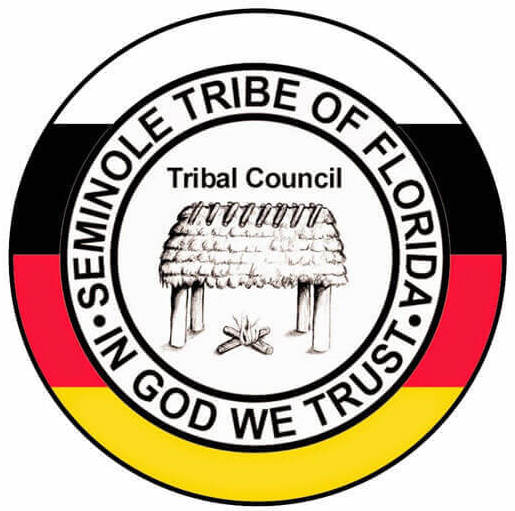 Naturally, sports betting was not mentioned in previous compacts since it was only legalized in 2017 when the U.S. Supreme Court (SCOTUS) repealed PASPA. The compact also gave the Seminoles the right to offer sports betting at all their casinos and to work with pari-mutuel companies to offer sports betting at their facilities and processed on Seminole servers. West Palm Beach Kennel Club, Ocala Gainesville Poker, Hialeah Park Casino, and Tampa Bay Downs signed an agreement with the Seminoles to offer sports betting at their facilities and the Tribe began offering sports betting online via the Hard Rock app, a company that the Seminole Tribe bought our years ago.
Naturally, sports betting was not mentioned in previous compacts since it was only legalized in 2017 when the U.S. Supreme Court (SCOTUS) repealed PASPA. The compact also gave the Seminoles the right to offer sports betting at all their casinos and to work with pari-mutuel companies to offer sports betting at their facilities and processed on Seminole servers. West Palm Beach Kennel Club, Ocala Gainesville Poker, Hialeah Park Casino, and Tampa Bay Downs signed an agreement with the Seminoles to offer sports betting at their facilities and the Tribe began offering sports betting online via the Hard Rock app, a company that the Seminole Tribe bought our years ago.
It seems that DeSantis assumed no one would challenge the compact, but he was wrong. Two companies, Bonita Springs Poker Room and Magic City Casino, owned by West Flagler Associates argued that the compact was illegal since it allowed the Tribe to offer sports betting outside of Tribal lands in violation of the Indian Gaming Regulation Act (IGRA). The Seminoles and state lawyers, however, argued that all sports bets would be handled by servers located on Seminole territory and therefore is legal. According to reports, West Flagler believed that it was so blatantly obvious that the IGRA disallowed sports betting not located on Tribal lands, that the feds would shut down the compact immediately.
Instead, Deb Haaland, the U.S. Secretary of the Interior approved the compact when it reached her desk and she got the backing of President Biden. Consequently, West Flagler sued Deb Haaland and her office saying the government’s approval was incorrect and illegal. There is some belief that online sports betting companies, including DraftKings and FanDuel, helped back the lawsuit.
The Tribe began offering sports betting on the Hard Rock app in September 2021, but were required to stop when a federal judge in November 2021 called the compact “a fiction” and said it violates the IGRA. The Seminoles shut down the app but continued to push for a decision on the legality of the compact from other courts. In June of this year a federal appeals court overruled the original judge’s decision saying the compact was legal without giving specific reasons, but in October SCOTUS put a temporary stay on the appeals court ruling after they indicated some concerns. However, a few days later they lifted the stay, although Justice Brett Kavanaugh expressed concern that it may violate the state’s constitution and that it may go against equal protection laws. So effectively Justice Kavanaugh dissented without officially dissenting. The court made it clear that West Flagler could still file suit with the Florida Supreme Court to have their motion heard.
 That announcement by SCOTUS paved the way for the Seminoles to start offering sports betting again. As expected, West Flagler filed suit with the Florida Supreme Court prior to the court’s mandated deadline and the Florida Attorney General Ashley Moody filed a motion to have West Flagler’s lawsuit thrown out for three specific reasons. First she said that West Flagler waited over two years to file the in Florida and only did so after they lost in two other courts (not exactly true). Second, she said that the petition for writ of quo warranto fails to meet legal standards. And third she claimed that sports betting isn’t really casino gambling and therefore needs to be treated differently.
That announcement by SCOTUS paved the way for the Seminoles to start offering sports betting again. As expected, West Flagler filed suit with the Florida Supreme Court prior to the court’s mandated deadline and the Florida Attorney General Ashley Moody filed a motion to have West Flagler’s lawsuit thrown out for three specific reasons. First she said that West Flagler waited over two years to file the in Florida and only did so after they lost in two other courts (not exactly true). Second, she said that the petition for writ of quo warranto fails to meet legal standards. And third she claimed that sports betting isn’t really casino gambling and therefore needs to be treated differently.
The introduction to the AGs request to have the suit thrown out reads as follows:
“Two south Florida pari-mutuel operators and their vice president petition this Court for a writ of quo warranto. They seek to undo the 2021 gaming compact agreed to by the State and the Seminole Tribe of Florida; approved by the Legislature and the U.S. Secretary of the Interior; and now held by the federal courts to be consistent with federal law.”
The most interesting part of the AGs filing, however, says “Sports betting is not ‘casino gambling’ as that term is defined in the Florida Constitution because it is not a type of game typically found in casinos.” It also goes on to say that “The Legislature validly deemed an online sports-betting transaction to occur on tribal lands where wagers are accepted.”
So, in better words the state Attorney General has indicated that, in Florida’s view, the lawsuit by West Flagler in the state Supreme Court is frivolous because they won’t take no for an answer from other courts and because sports betting is different than casino gambling and must be treated so since the bet takes place where it’s processed and not where it’s placed. West Flagler has apparently asked to be heard by SCOTUS and Justice Roberts gave West Flagler until February 8th to file their SCOTUS appeal.
What about online gambling precedent?
The main issue is that if either court agrees with the AGs argument, then they are technically opposing precedent. When the IGRA was first passed in 1988 the internet didn’t exist, so the issue of online/digital gambling wasn’t a consideration. But in the late 1990s internet gambling became more mainstream and many operators from the United States, or living elsewhere, set up operations offshore where the governments of those offshore nations said that it was legal to take bets on servers located there from around the world, including the United States. Attorney General Janet Reno issued an arrest warrant for 21 Americans operating casinos and sportsbooks offshore for violating the Wire Act and stated that the bet takes place where it is made and that American operators “can’t hide offshore and can’t hide online.” Some returned and pleaded guilty, some chose to remain offshore but one individual, Jay Cohen, returned to the United States to face the charges. He claimed that the bets to his website World Sports Exchange were legal because the laws in Antigua allowed him to accept wagers from anywhere and a bet online takes place where it is processed and not where it is placed. The government contended that the logic was faulty and that he was in violation of The Wire Act. In the end the jury found Cohen guilty and with that decision it was pretty much made clear that in the eyes of the United States any bet placed from the United States takes place in the United States. At the same time the issue was never formally addressed by any court and analysts said at some point it would have to be addressed concretely. That could be sooner rather than later.
IGRA intertwined with the Wire Act
Obviously the IGRA and Wire Act are different legislation, but the question for each is the same. If a bet is placed in one location and processed in another location then in which location does the bet actually occur? Because the IGRA mandates that all betting must take place exclusively on Indian lands, then for Moody’s appeal to be accepted as written then the courts must agree that online bets take place where they are processed, i.e., on the server. So effectively allowing Moody’s argument to stand, the courts would be disagreeing with the decision in the Jay Cohen case, where the jury suggested that an online bet takes place where it is made and not where it is accepted.
Consequently, operators located in places like Costa Rica, Antigua, Kahnawake, Malta, etc. would be able to claim that their sportsbooks are completely legal since the servers are not located in the United States and the U.S. government would have no more recourse to try and arrest operators who handle sports bets on a server outside of the United States as the FBI has done previously.
Ironically, it seems that Tribes even know that the Wire Act is the big concern and that is the piece of legislation that is holding them back, not the IGRA. In gambling conferences held in the last few years, individuals representing the Tribes have said they would be petitioning the federal government to repeal the Wire Act, because the confusion over where an online bet takes place is putting them at a disadvantage. Tribes in Michigan were only allowed to offer online sports betting by operating as a commercial entity and letting companies like DraftKings handle the bets. And in many other states, there is opposition to online sports betting, especially where it is legal only for the Tribes, because state AGs still believe that the law of the land prohibits them from processing bets online counter to the Wire Act, not the IGRA.
I spoke to a gambling analyst who said that while Indian Gaming isn’t his specialty, he does believe that this compact could be the impetus to a repeal of The Wire Act once and for all:
“The Wire Act is obsolete and is hindering states and interests, including the Tribes. With sports betting now being conducted throughout the nation and much of it online, the courts need to ask why the Wire Act is still in place. It was introduced to stop criminals from taking bets over the phone on horse racing and sports, but with 60% of states now accepting sports wagers, and that figure likely to be at least 80% by 2030, it seems the law now has about as much relevance as laws prohibiting jaywalking or spitting on the sidewalk. It served a purpose from the 1960s to about 2000, but now it does nothing but hinder progress. Some states will still want to keep betting intrastate only, which is fine, but there are many times when interstate wagering would be beneficial. And to be honest, interstate sports wagering already takes place with fantasy sports. Call it a contest or a rotisserie league, the truth is that it is sports wagering and the two largest sites by far and away operate sportsbooks throughout the United States. It’s ridiculous and I have no doubt that if Congress wanted to get the Wire Act repealed that SCOTUS would give it their stamp of approval almost immediately as they did with the repeal of PASPA which they acknowledged was no longer in the best interest of U.S. states.
What does that have to do with the IGRA? It’s simple. The IGRA is relevant for land-based casinos, but not online wagering. If The Wire Act was repealed then all online wagering would be legal and then it would be up to the states to determine how they wanted that applied. In Florida it’s clear that the Seminoles would still be given the exclusive right to sports betting and online wagering, but the issue of whether an online bet takes place on Indian lands or not would be moot. And in places like Michigan, New York and various other states with hybrid models of gambling, the state could authorize bets on servers located on the reserves to anywhere and the concern of where a bet originates would be taken out of the equation.”
 So, the legality of the Florida compact now lies with the Florida Supreme Court and could end up on the docket of SCOTUS. If the exact wording of the IGRA is applied then Florida’s compact is illegal because it allows wagering off of Tribal lands. But if the courts accept the Florida AGs argument that online sports betting is different and takes place where the server is located then they would be acknowledging that their enforcement of the Wire Act with regards to offshore gambling until now was wrong, since it addresses the exact same question, i.e., where does a bet take place?
So, the legality of the Florida compact now lies with the Florida Supreme Court and could end up on the docket of SCOTUS. If the exact wording of the IGRA is applied then Florida’s compact is illegal because it allows wagering off of Tribal lands. But if the courts accept the Florida AGs argument that online sports betting is different and takes place where the server is located then they would be acknowledging that their enforcement of the Wire Act with regards to offshore gambling until now was wrong, since it addresses the exact same question, i.e., where does a bet take place?
No doubt other states and Tribal groups are awaiting this decision to see what is legal and what isn’t and moreover, what the limitations are for compacts when it comes to remote gambling and sports betting. The federal government has made it their contention that they want the compact to be allowed and this administration has also discussed previously the possible need to take another look at the Wire Act itself. This may be a perfect opportunity to kill two birds with one stone. By asking the courts to repeal the Wire Act, the internet provisions in the IGRA would become moot and it would give more powers to the states which the Republican justices have said is their main objective. If and when West Flagler’s appeal is sent to SCOTUS, we’ll have to see if they take that into consideration.
Read articles on the North American gambling industry from Hartley Henderson here at GamblersWORLD.

